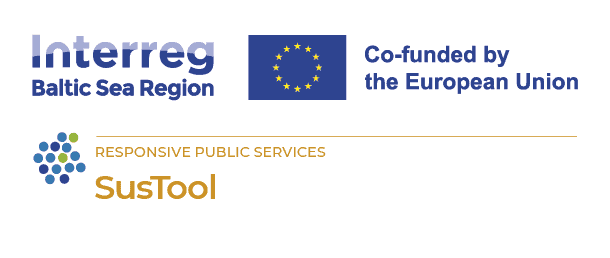
Five countries collaborate on international digital tool for sustainability reporting
21 May 2024
Under the leadership of the Ministry of Economic Affairs and Communications, public and private sector organizations from Estonia, Finland, Latvia, Lithuania, and Poland are developing an international web platform and digital tool to support the sustainability journey and reporting for companies in the IT and service sectors.
Scheduled to be completed by the end of next year, the tool will enable ICT and service sector entrepreneurs to assess the impact of their company’s operations on the environment, social welfare, and economic sustainability. It will allow companies to map and analyze their position in ten sustainability-related areas: climate change, pollution, water and marine resources, biodiversity and ecosystems, resource usage and circular economy, labor force, employees in the value chain, affected communities, consumers and end-users, and business conduct. The analysis conducted using the tool will provide recommendations to the company for achieving its sustainability goals.
In addition to the tool, the web platform will include descriptions of sustainability reporting standards, general sustainability guidelines, educational videos, examples of best practices, and references to useful web materials. The tool, named “ESG Tool,” will be developed in English, Estonian, Finnish, Latvian, and Lithuanian languages, and it will be freely accessible to all. The tool is scheduled to be piloted in ICT companies at the beginning of next year.
“The implementation of the Corporate Sustainability Reporting Directive is a significant milestone towards sustainability, but it also presents several challenges. For example, the abundance of different standards and regulations yet to be clarified puts additional pressure on companies to identify the necessary information for reporting,” explained Sandra Särav, Deputy Secretary General for Economic Development and Innovation at the Ministry of Economic Affairs and Communications. “To make it easier for businesses to operate in Estonia, we aim to provide a tool that would allow companies to more easily gather necessary information from suppliers, customers, and investors. Additionally, stakeholders expect companies to provide sustainability information beyond existing regulations, thus increasing business costs. Currently, there are no publicly available and free tools for companies to assess their sustainability. To address these challenges, we are creating an environment that guides entrepreneurs in the right direction and provides necessary answers,” added Särav.
The Corporate Sustainability Reporting Directive (CSRD) must be transposed into the national legislation of all EU member states by 2025. The directive requires all large companies and listed companies, including listed small and medium-sized enterprises (SMEs), to regularly disclose information about their social and environmental impact.
The obligation of sustainability reporting will be implemented gradually. In 2024, reports must be submitted by entities of public interest, namely financial institutions, insurance companies, and listed companies with over 500 employees. In 2025, the obligation to prepare sustainability reports will also apply to all other large companies. In 2026, the obligation will extend to SMEs that are listed, as well as certain insurance companies and financial institutions that were not previously subject to obligations due to their size. In reality, however, the directive affects almost all SMEs, as they are part of supply chains. Investors, banks, end consumers, and other stakeholders demand sustainability reporting. Therefore, there is a high and growing demand for reporting.
The development of the “ESG Tool,” which simplifies sustainability reporting, began in 2023 and is part of a broader initiative aimed at promoting digital innovation and change in the Baltic Sea region. The project is supported by the Interreg Baltic Sea Region Programme, with a total budget of approximately 3.5 million euros. Project partners include the Ministry of Economic Affairs and Communications as the lead partner from Estonia, and as partners, the Ministry of Finance, the Ministry of the Environment, the Environmental Investment Centre, ITL Estonia, and Let’s Do It Foundation from Estonia, DIMECC LTD and the Ministry of Economic Affairs and Employment from Finland, LIKTA and the Ministry of Environmental Protection and Regional Development from Latvia, INFOBALT and the Ministry of Economy and Innovation from Lithuania, and WAMA COOP from Poland. The project will conclude on December 31, 2025.
More information about the project: https://interreg-baltic.eu/project/sustool/





